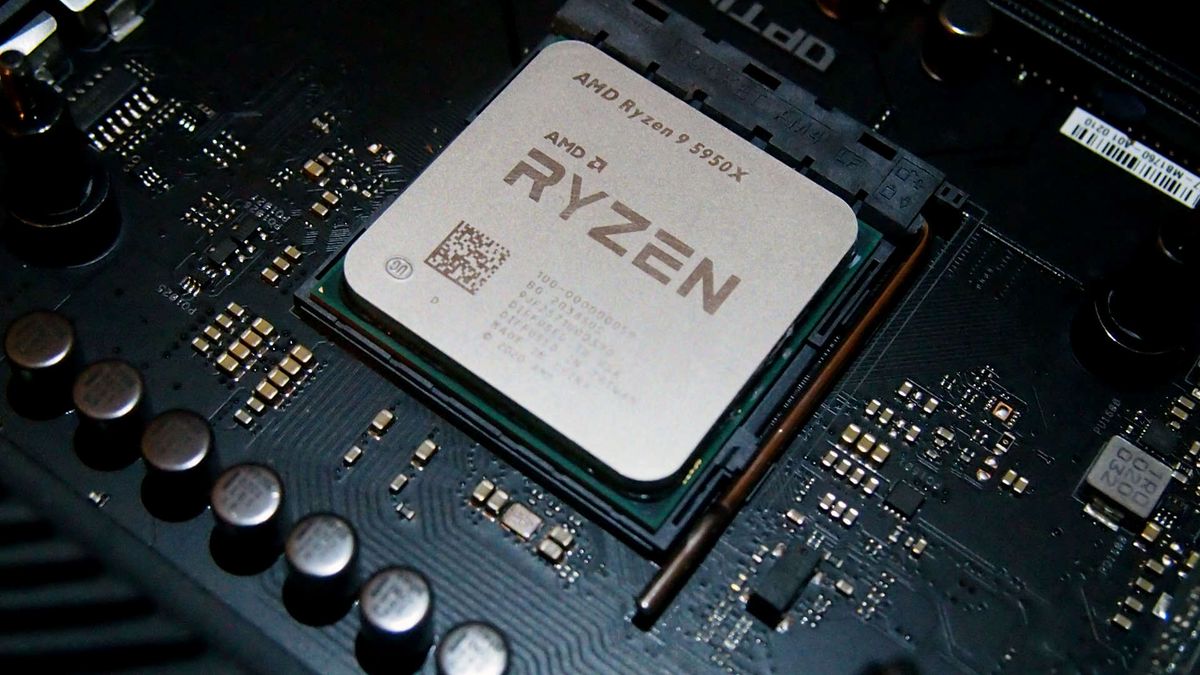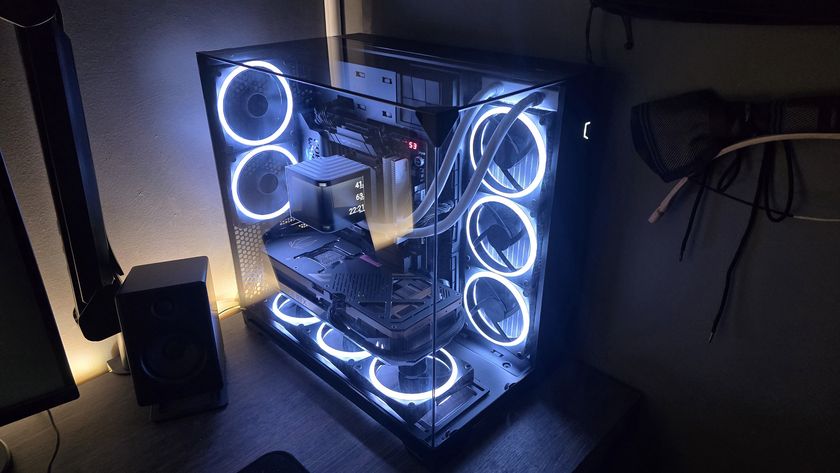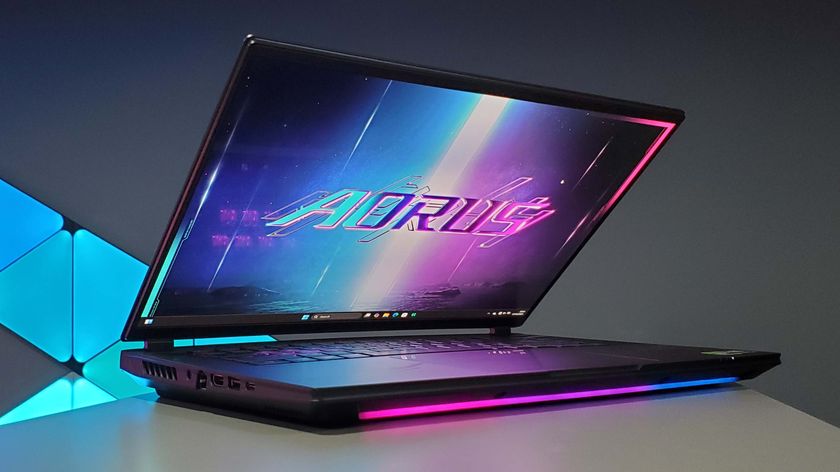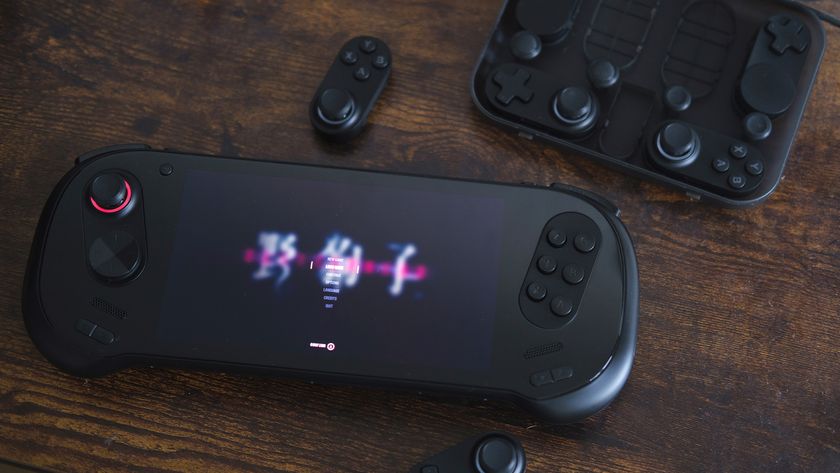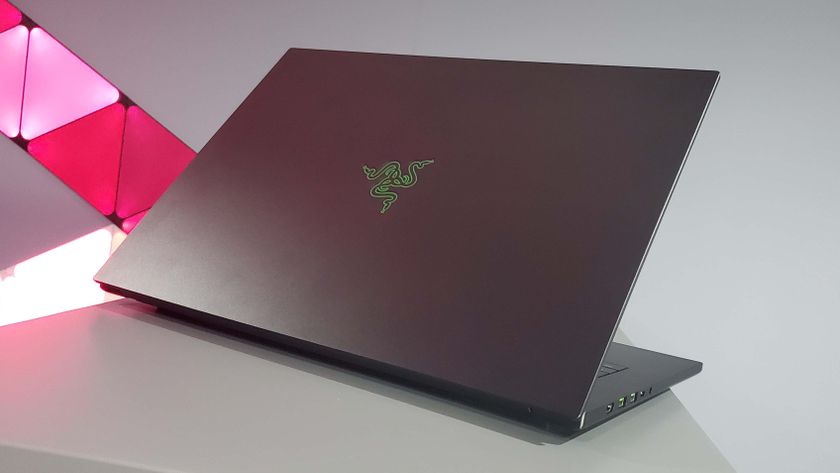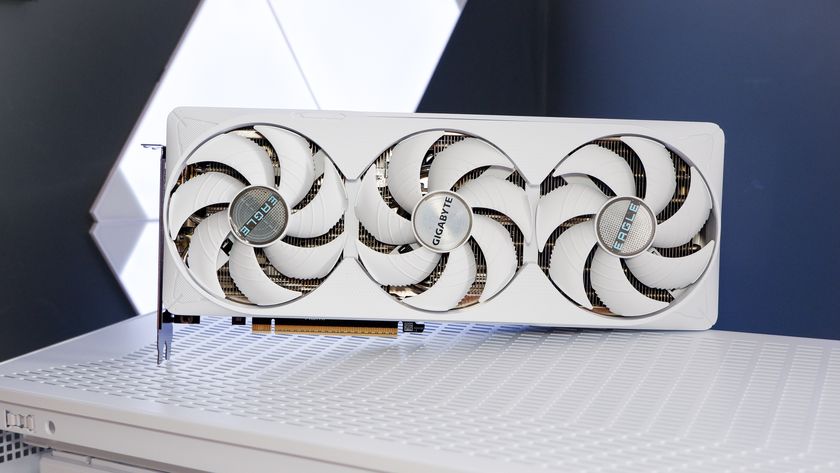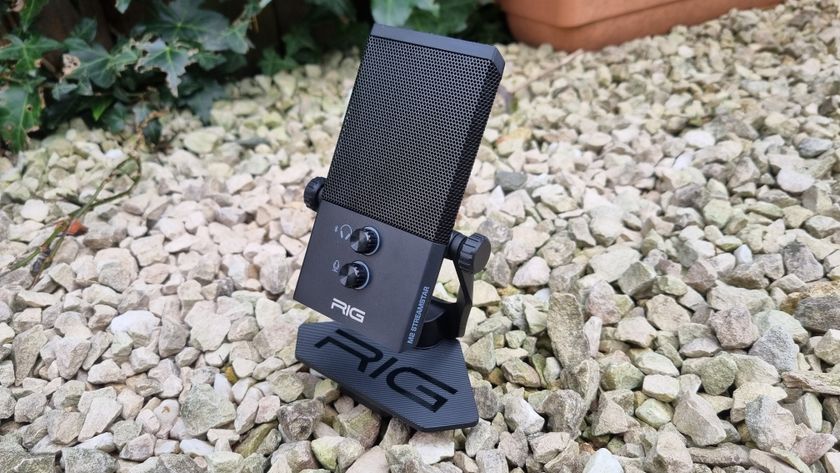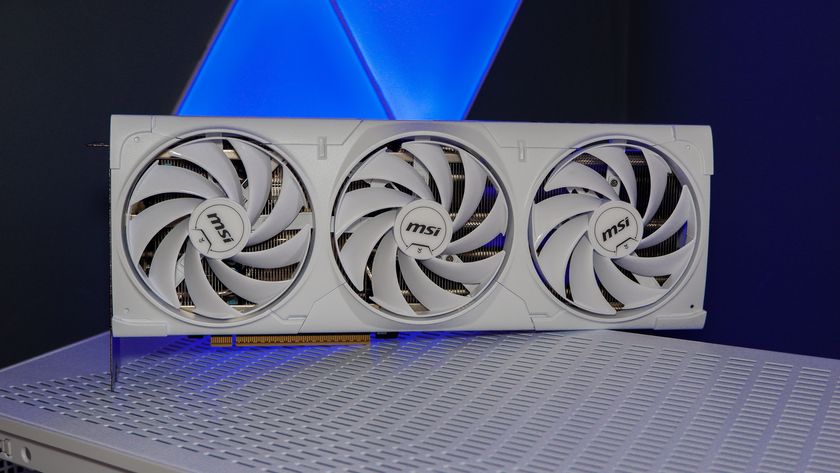Our Verdict
An all round stunning CPU but if gaming is your major focus then the cheaper 5000 series models provide better gaming bang for buck.
For
- Stunning all round performance
- Power efficiency
- Feature rich AM4 platform
Against
- Cheaper models are better for gaming PCs
- Price creep
PC Gamer's got your back
The red team is promising the AMD Ryzen 9 5950X is the ultimate gaming CPU, the pinnacle of all its Zen 3 processors, and the outright fastest too. But can it justify that enormous cost with gaming performance that leaves the rest in the dust?
We’ve been full of praise for AMD's new Ryzen 5000 series processors. The already strong multi-threaded and content creation performance of Ryzen 3000 processors has been further enhanced and AMD’s lead has been extended over the Intel competition under these kinds of loads. What we were really keen on seeing was whether the Zen 3 chips' gaming performance took a big enough leap to see AMD take the coveted gaming crown.
As you'll have seen in our Ryzen 7 5800X and 5900X reviews, the answer is yes, it did. Zen 3 processors are now able to match or beat the Intel competition in gaming. Add in lower cooling requirements and power consumption, platform superiority and aforementioned multi threading prowess and it’s clear that AMD has a winner on its hands. A question that remains is whether the flagship 16 core Ryzen 9 5950X with its 4.9GHz rated boost clock the ultimate gaming CPU that AMD claims it is.
You can read all about the architectural highlights here in our Ryzen 9 5900X review. One of the major design goals for AMD was to reduce core to core latency, which is one of the attributes that affects game performance. The massive L3 cache goes a long way to reducing the need for excessive memory accesses and data shuffling via the Infinity Fabric and I/O die.
While the amount of L3 remains the same, it’s the arrangement that sets Ryzen 5000 apart from its predecessors. All cores on a die can now access the entire 32MB cache without incurring a latency hit unlike Ryzen 3000 which was effectively 2x 16MB. This alone is responsible for a lot of AMD's newly found gaming prowess.
Cores - 16
Threads - 32
Lithography - TSMC 7nm
Base clock - 3.4GHz
Boost clock - 4.9GHz
L3 Cache - 64MB
Memory support - DDR4 3200MHz
Socket - AM4
TDP - 105W
Cooler - None
Launch price - $799 |£749 | AU$1,249
The 16-core, 32-thread Ryzen 9 5950X is the top model in the Ryzen 5000 series range. The base clock is 3.4GHz and its boost clock is 4.9GHz. Its dies contain 8 cores and 32MB of L3 cache each, for a total of 64MB. It’s compatible with X570, B550 and even A520 motherboards, with X470 and B450 compatibility to follow.
You’ll need to pay close attention to what BIOS you have as many users will likely be caught out with missing BIOS support. All models apart from the 5600X lack a bundled cooler and with the upwards price creep of the entire range, the outstanding value we’ve seen from past Ryzen generations is lessened.
Still, 16 cores on a mainstream socket is still pretty awesome when Intel tops out at 10, and is set to revert to eight with Rocket Lake next year.
TDP of the Ryzen 9 5950X remains an impressive 105W. We think AMD would like to officially increase this but remember that the 5950X is supposed to remain compatible with cheap B450 and A520 boards. Threadripper Zen 3 processors with fewer power constraints should be amazing to behold.
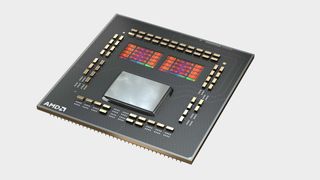
Gaming performance





CPU performance




The power consumption of the 5950X is still impressive, however, drawing less power from the wall than an Intel Core i9 9900K despite having double the number of cores. It does get a bit toasty under a full load, but a decent 240mm AIO will be sufficient to keep it cool. If you want to overclock though, you’ll need a 360mm rad or be prepared to put up with some seriously aggressive fan ramping.
Overclocking the high core count Zen 3 processors can net you a significant multi-threading boost, but since the 5950X can already boost to 4.9GHz (and even above 5GHz) under lighter loads such as while gaming, it's generally advised to leave it at auto, or let the PBO do its thing in order to achieve maximum gaming performance. Hitting 4.5GHz on all cores was easy at 1.25v, but temperatures spiked into the 80s under a sustained load so for sure you’ll need good cooling to really max out a 5950X.
Small form factor PC lovers should not overlook the under-appreciated ECO mode either. A 65W 5950X in a tiny system will definitely appeal to many users, most especially those with a more creative bent.
We took the opportunity to test the Ryzen 9 5950X with a brand new Asus Crosshair VIII Dark Hero motherboard using the latest AGESA 1.1.0.0 Patch C BIOS. With this we were able to boot and benchmark at an Infinity Fabric clock of 2033MHz, which, in a 1:1 ratio with the memory, results in a memory clock of DDR4-4066. Impressive! Will this become a new normal for AMD where DDR4-4000 becomes the performance sweet spot? That's certainly the noise AMD was making pre-launch, but patchy support has so far kept it to only a select few boards and chips in the new silicon lottery.
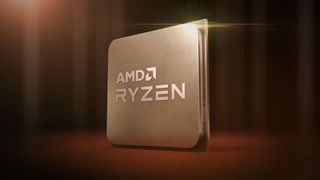
Intel desperately needs Rocket Lake and then an effective 10nm desktop part. Until that happens, AMD really is the big kahuna
So, how does the Ryzen 9 5950X perform? As expected, it's a one horse race when it comes to multi-threaded performance. Anything that can scale up to 32 threads is laughed off with stunning efficiency. Quite simply Intel has nothing to compete with the 5950X unless you jump up to much more expensive enterprise solutions.
When it comes to gaming, the Zen 3 architecture is another huge step forward from Zen 2 and the Ryzen 3000-series chips. It doesn't really destroy Intel, but it removes the gaming superiority narrative that kept Intel ahead in the eyes of many users. We do actually see the 5950X slightly behind the 5800X in some cases and this makes it a little tough to recommend as the ultimate gaming CPU, despite AMD's claims.
This bring us back to the question posed in the introduction. Despite its range topping 4.9GHz boost clock, it does on occasion slightly trail its 8 core little brother, the 5800X. This is likely a combination of a lack of topology optimisation from some game engines, an underutilisation of cores and socket power limitations.
It’s no slouch at all, make no mistake, but you’ll be better served going with the likes of a 5800X and putting the money saved towards a faster GPU for a more tangible gaming performance gain.
CPUs aren’t only for gaming though. When you consider the lower cooling requirements, awesome power efficiency, platform superiority and unrivaled multi threading prowess - and the cherry on top- highly competitive gaming performance, then the 5950X is the king.
It’s not like Intel got slower overnight and a pure gamer shouldn’t feel the need to upgrade, but it's come to the point where Intel desperately needs Rocket Lake and then an effective 10nm desktop part. Until that happens, AMD really is the big kahuna.
An all round stunning CPU but if gaming is your major focus then the cheaper 5000 series models provide better gaming bang for buck.

Chris' gaming experiences go back to the mid-nineties when he conned his parents into buying an 'educational PC' that was conveniently overpowered to play Doom and Tie Fighter. He developed a love of extreme overclocking that destroyed his savings despite the cheaper hardware on offer via his job at a PC store. To afford more LN2 he began moonlighting as a reviewer for VR-Zone before jumping the fence to work for MSI Australia. Since then, he's gone back to journalism, enthusiastically reviewing the latest and greatest components for PC & Tech Authority, PC Powerplay and currently Australian Personal Computer magazine and PC Gamer. Chris still puts far too many hours into Borderlands 3, always striving to become a more efficient killer.

The PC game releases we're most excited about in April

Call of Duty will finally let console players turn off crossplay to dodge PC cheaters, which is potentially terrible news for all the legit PC players

Atomfall surpasses 1.5 million players to become Rebellion's most successful game launch in 32 years
